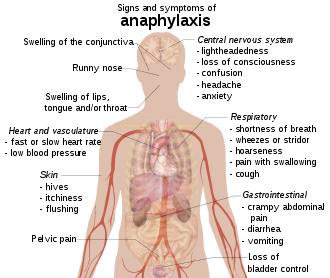The nurse is caring for a patient on a medical-surgical unit who has a fever of unknown origin. The prescriber has ordered a broad-spectrum antibiotic. Which intervention is the priority?
Obtaining all cultures before the antibiotic is administered
Delaying administration of the antibiotic until the culture results are available
Administering antipyretics as soon as possible
Administering the antibiotic immediately
The Correct Answer is D
A. Obtaining all cultures before the antibiotic is administered: While obtaining cultures is important for identifying the specific pathogen causing the infection and guiding targeted antibiotic therapy, waiting for culture results can take time. During this time, the infection can progress. Therefore, it's generally recommended to initiate broad-spectrum antibiotics first and then adjust the treatment based on culture results.
B. Delaying administration of the antibiotic until the culture results are available: Delaying antibiotics until culture results are available can be risky, as it allows the infection to progress, potentially leading to sepsis or other severe complications.
C. Administering antipyretics as soon as possible: Administering antipyretics like acetaminophen or ibuprofen can help reduce fever and make the patient more comfortable. However, the primary intervention for a suspected infection is antibiotic therapy, as it targets the underlying cause of the fever.
D. Administering the antibiotic immediately: When dealing with a patient with a fever of unknown origin and a suspected infection, the priority is to start appropriate antibiotic therapy promptly. Delaying antibiotic administration can allow the infection to worsen, leading to serious complications.
Nursing Test Bank
Naxlex Comprehensive Predictor Exams
Related Questions
Correct Answer is ["B","D"]
Explanation
A. Hypertension: Anaphylaxis often leads to a rapid drop in blood pressure (hypotension) rather than hypertension. Hypotension is a more common symptom because of the severe vasodilation that occurs during anaphylactic reactions.
B. Angioedema: Yes, angioedema is a common clinical manifestation of anaphylaxis. Angioedema involves swelling of the deeper layers of the skin, often around the eyes and lips. It can also affect the throat, which can be life-threatening due to airway obstruction.
C. Petechiae: Petechiae are small red or purple spots that appear on the skin and are caused by bleeding into the skin's tissues. They are not a typical manifestation of anaphylaxis.
D. Bronchospasm: Yes, bronchospasm is a hallmark clinical manifestation of anaphylaxis. It involves the sudden constriction of the airways, leading to difficulty in breathing and wheezing.

Correct Answer is A
Explanation
A. Discoloration of teeth: Tetracycline antibiotics can bind with calcium ions in teeth, leading to the development of yellow-gray-brown stains. This effect is particularly significant in developing teeth in children below the age of 8 and can result in permanent discoloration.
B. Anabolic change: This term doesn't specifically relate to the side effects of tetracycline. "Anabolic" generally refers to processes in the body that build up complex molecules from simpler ones. There's no direct connection between tetracycline and anabolic changes.
C. Cartilage damage: Tetracyclines, especially in high doses or with prolonged use, have been associated with potential adverse effects on cartilage. This is more relevant in individuals whose bones and cartilage are still growing, such as children. It can interfere with skeletal development.
D. Suppression of growth: Long-term use of tetracycline in children can interfere with bone growth and development. It can suppress the growth of bones and affect overall height. This is a significant concern when considering the use of tetracycline in pediatric patients.
Whether you are a student looking to ace your exams or a practicing nurse seeking to enhance your expertise , our nursing education contents will empower you with the confidence and competence to make a difference in the lives of patients and become a respected leader in the healthcare field.
Visit Naxlex, invest in your future and unlock endless possibilities with our unparalleled nursing education contents today
Report Wrong Answer on the Current Question
Do you disagree with the answer? If yes, what is your expected answer? Explain.
Kindly be descriptive with the issue you are facing.
